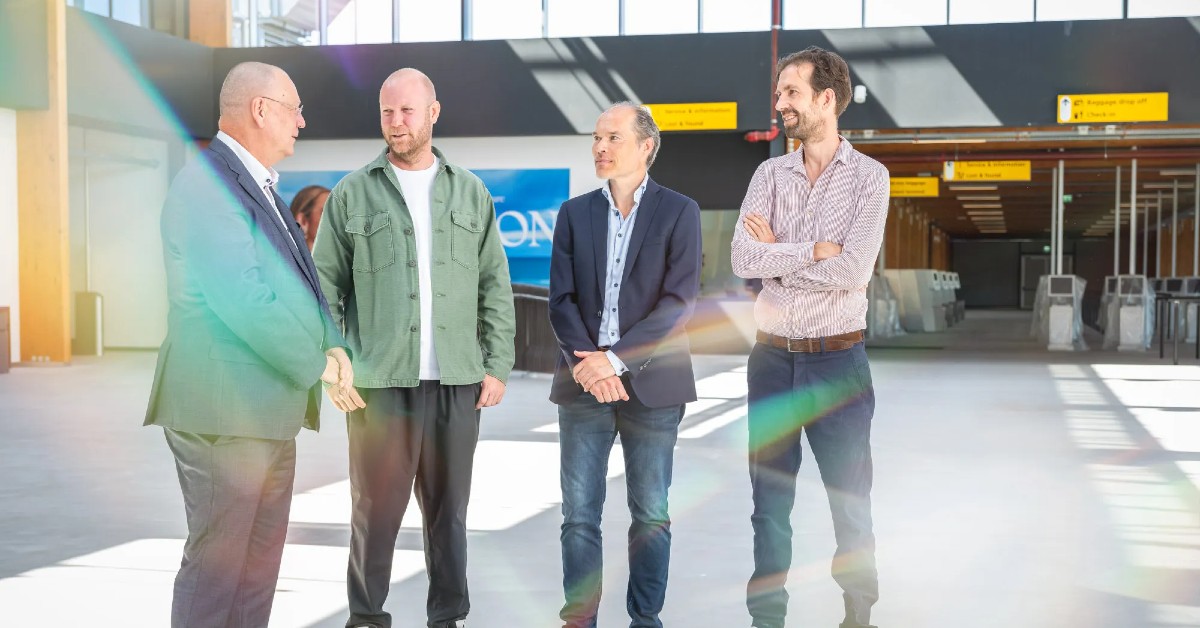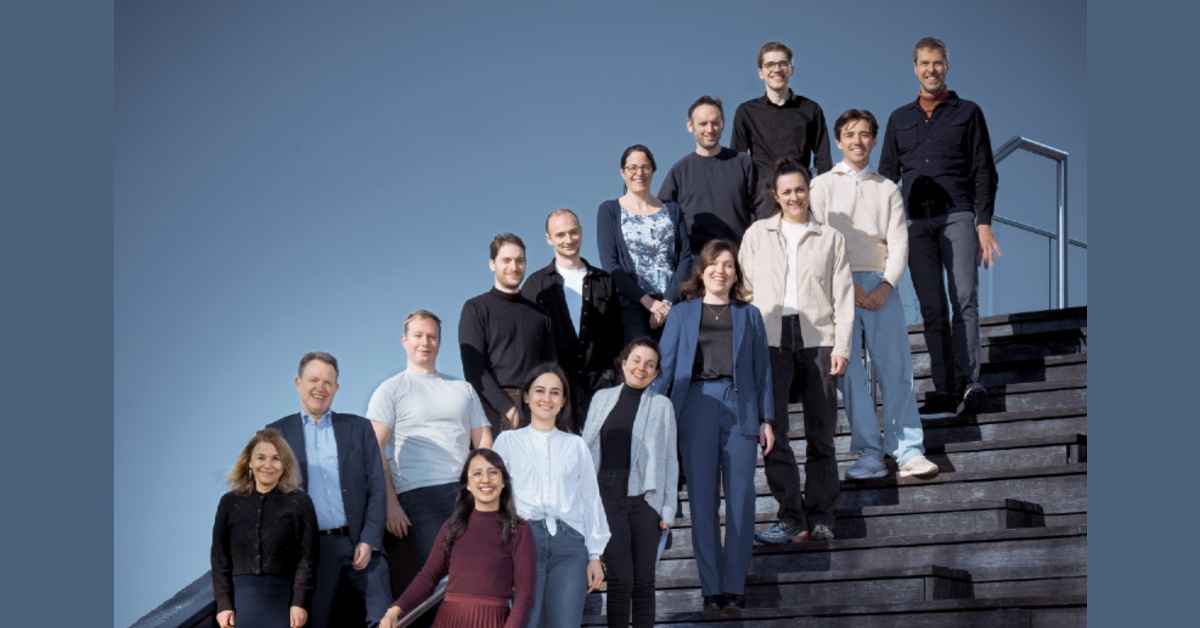The future of coding is without code. At least, that’s what’s to believe if you follow all the news about the current low-code and no-code developments. But when can a no-code or low-code solution be beneficial, and when should you stick to custom code? Does a future without code obviate the need for developers?
CTO roundtable: the future of low-code
To find answers, software development company The Software House got together with some experienced CTOs from the field to discuss their experiences. Gerbert Oude Velthuis, General Manager for The Netherlands of The Software House, hosted a CTO Roundtable in collaboration with Holland FinTech.
A low-code or no-code environment swaps the actual coding for a slick graphical interface for those not entirely familiar with the concept. To create new applications or functions in no-code, one only needs to drag, drop or click. The idea is that anyone can do it, no coding experience required, says Remco Jorna. He joined the roundtable of The Software House as CTO of Fintech OS, a low-code/no-code platform for financial institutions to digitise more rapidly.
‘Point and click programming’ for everyone?
“Low-code are engineering practices that we put into a development environment, which allow digital developers to point and click applications, so they can focus on business value instead of on focussing on the wiring getting development in place”, explains Jorna.
However, a low-code environment is not suitable for anyone, discovered Jasper Laagland. He participated in the roundtable as CTO of Factris, a fintech that purchases invoices from small and medium-sized businesses, and pays them out on the same day. After trying a low-code solution, Factris decided to create its proprietary software approach. “What we wanted was not available. If it was, it was the property of somebody else. We wanted to have the ownership and intelligence in our own company.”
Participating in the roundtable was Bastiaan de Ruiter, CTO of Blanco, a platform that helps independent wealth managers manage client investments. He points out low-code solutions have been part of programming for a while now. “We have a lot of connections with third parties through APIs. If one of them provide the functionality we need, we integrate it. “
The growing need for low-code
“If you use custom code, there are also extensive frameworks and libraries”, De Ruiter continues. “In that sense, there’s also a level of extraction higher. We use these to make our process more efficient.” Laagland agrees. Despite having moved away from low-code with Factris, this approach is still common: “We also use these frameworks. It doesn’t make sense to invent a new React or Angular. We are not building our own KYC-solution completely. There is no added value to build those things yourself. We also reuse blocks from the UI. It’s not exactly low-code, but it gets closer and closer. There is a growing use-case for using low-code.”
What does the shift to low-code platforms or practices mean for developers? As Oude Velthuis points out, this could mean the rise of a generation of ‘citizen developers’. Business analysts or data scientists developing their tools. However, the attending CTOs don’t believe the future of low-code will make everyone suddenly a developer.
“The core skills remain the same. I don’t believe that everyone can suddenly create software,” says De Ruiter. Jorna adds that putting low-code platforms in the hands of everyone will create problems with governance. At the same time, Laagland stresses that it is still essential to know exactly what you are doing when creating programs: “We use a lot of our knowledge of our own operations and translate that into a system.”
Solution for the shortage of developers?
Will lowering the threshold for creating software solve the shortage of developers? “That depends on the setting,” says Bastiaan de Ruiter. “At a previous job, we used some sort of low-code environment. It was much easier to change something, so you need fewer developers. But for the implementation, we needed 40 people – all just for connecting to the legacy system. You’ll still need that kind of skillset. Once you have it set up you can quickly change and add things. We still need computer scientists, I’m afraid.
“You need people with the mindset of a developer”, says Jorna. “Clients have systems that are not always nicely exposed, so you need to understand what to do when the system is not available or doesn’t work.”
Dealing with moving targets
Another hurdle in creating low-code projects is the moving target with which CTOs are all too familiar. Jorna: “You start with a scope for the project, and once you get busy, you discover the scope should be different. Or for instance, you start with a simple system, but the system becomes more complex as business grows. How to prevent a system from becoming unmaintainable?”
According to Laagland, this might be hard to prevent: “Systems change, requirements change. As it goes with a startup, the road is not linear. The best thing you can do is to make sure the choices you make are sound. To build something flexible and scalable. It’s always a bit of a struggle between organising architecture and growing the system. There is no silver bullet. Building something for now is easy, but for the future is much harder. Goes for both custom code and low-code.”
Custom-code is far from over
The added value for low-code is apparent, but it won’t replace custom-code development just yet according to the experts. Low-code takes away a lot of complexity in setting up systems, managing the environment, ensuring security and scalability. That does mean that if you need a long-lasting, stable and high-quality solution, low-code will probably be insufficient.
Either you want to stand out from your competition, integrate a new solution with already existing ones, or you have an original idea that doesn’t exist yet – with custom code you can mould it to your exact needs. As de Ruiter says: “custom software development means using extension frameworks and a lot of libraries” – with all this technology at your disposal, the customisation possibilities are virtually endless.
Creating a custom software won’t be the cheapest or the fastest but it’s a way to go if you decide on a future-proof solution that will be the main investment in your business. Third-party vendors (and their products) come and go but can also change or break. Custom code prevents you from being completely dependable on somebody else.
Is the future of code without code?
So what will the future of code look like? Will it be one without code at all? “In 10 years, do we have more or fewer custom developers?”, Oude Velthuis wants to know. Laagland predicts creating software will certainly involve ‘putting blocks together’ and less custom code. Jorna always sees a dependency on custom code: “I think I will be writing less custom code. But you are always dependent on what the low-code platform provider puts in place. If they restrict the calls on your APIs or put licensing in place, that could impact usability. But something like a KYC process? It is not necessary to create it from custom code.”
Meanwhile, De Ruiter still sees a need for developers writing code, no matter how much low-code will evolve. He compares it with cars, which all share the same basic idea: four wheels, an engine and some seats. “Cars all have the same platform. But there are still a lot of engineers doing stuff. That will happen with code as well.”
More information?
We encourage you to watch the full version of the roundtable discussion on Youtube. If you have any more questions about starting, developing or maintaining a software project – go straight to the source. No matter if it’s a low-code or custom-code solution, The Software House invites you to their free consultation for tech managers. Sign up here!










01
From telecom veteran to Dutch Startup Visa success: The Jignesh Dave story